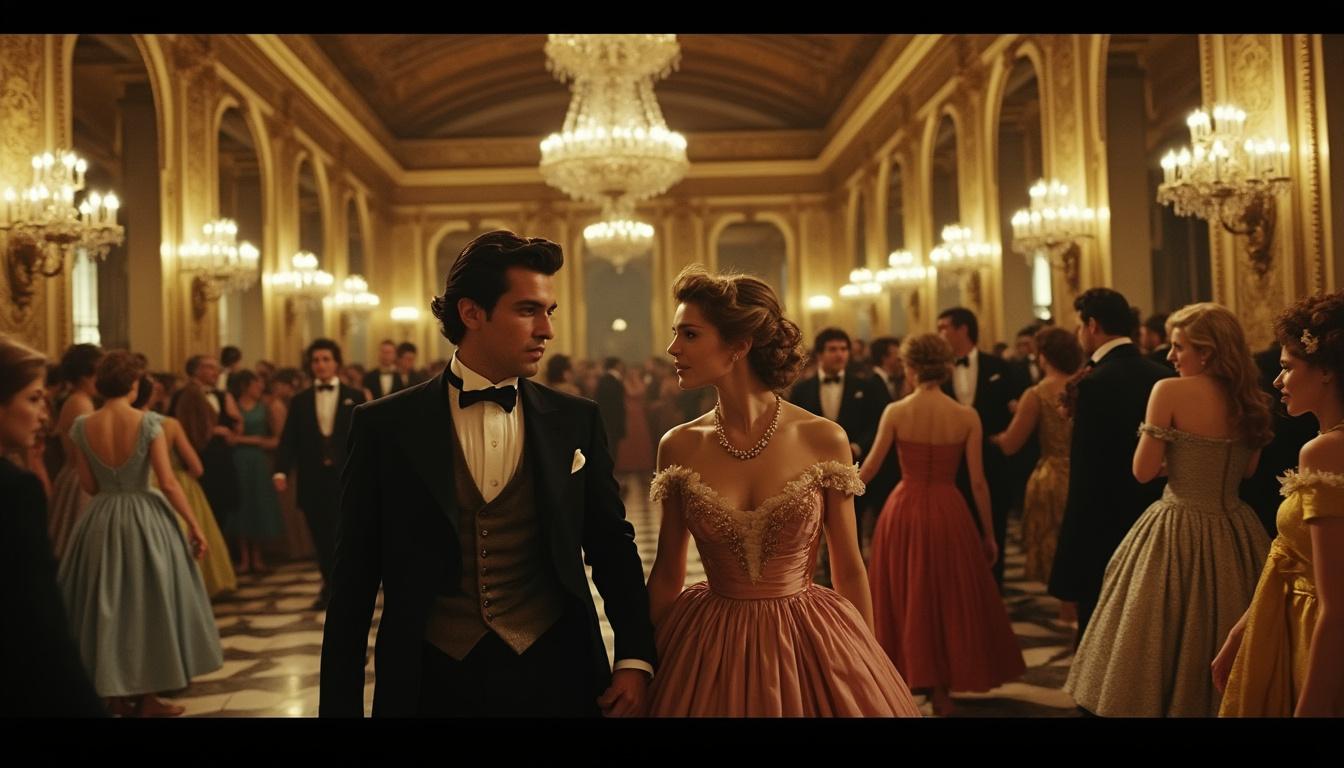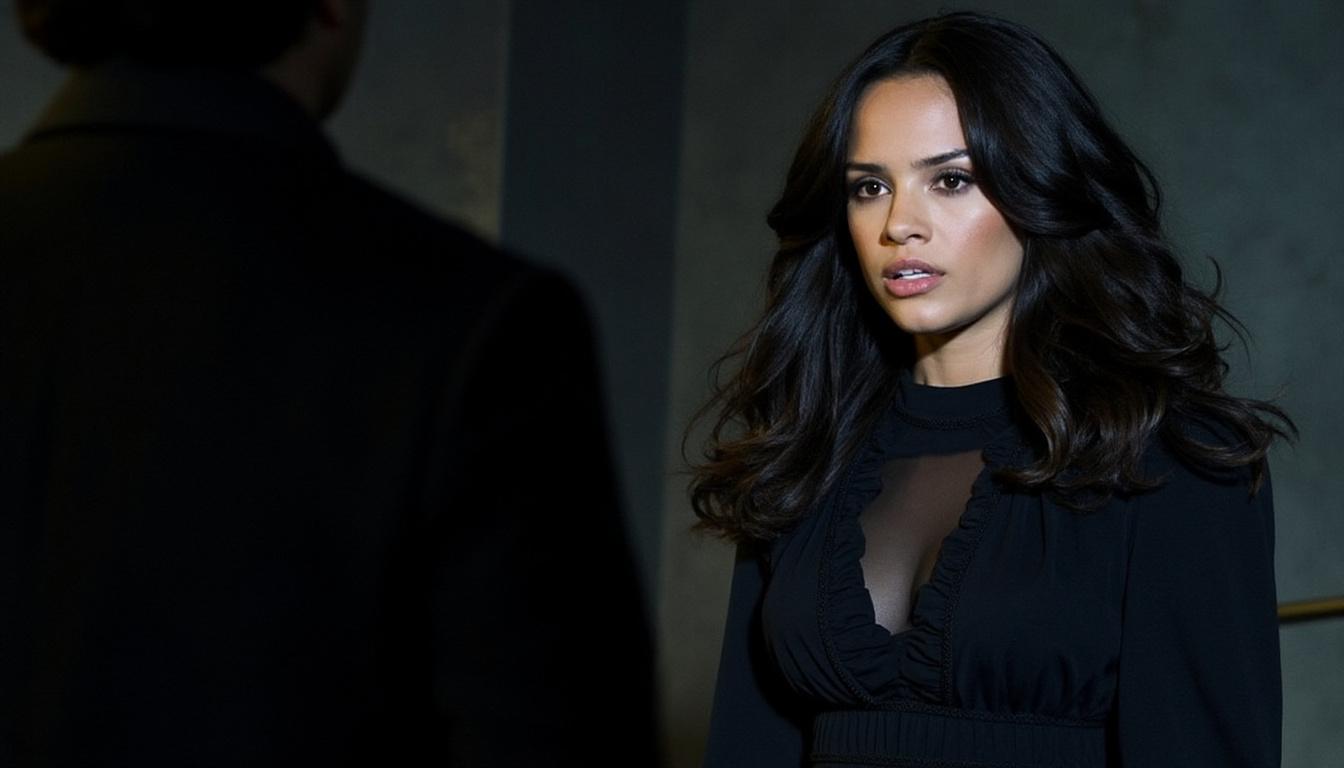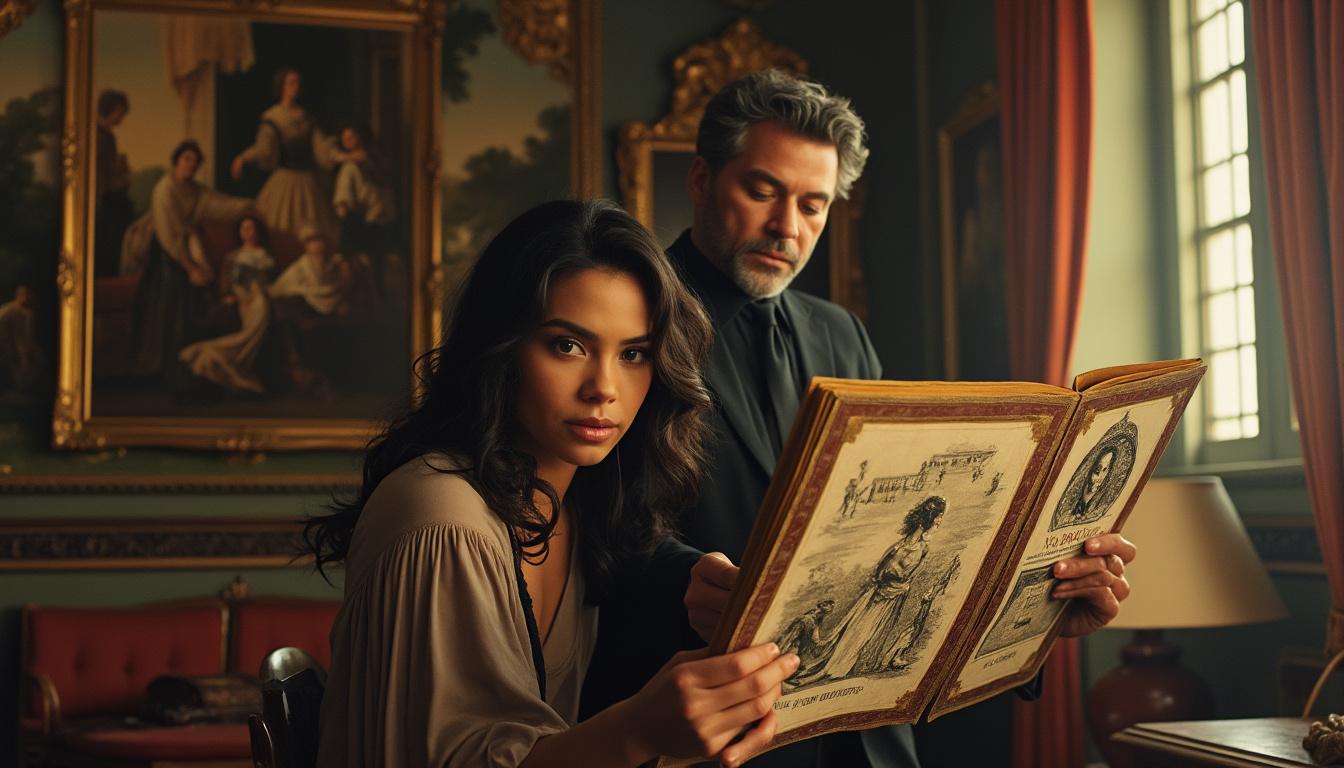Recent news has sent ripples through the entertainment industry, particularly among fans of Jenna Ortega. Known prominently for her brilliant performance in Netflix’s hit series Wednesday, Ortega had her sights set on a dream role as Joan of Arc in Baz Luhrmann‘s upcoming biopic Jehanne d’Arc. The interest surrounding the iconic French heroine and this high-profile film adaptation has sparked significant buzz in the film community. As Luhrmann prepares to cast the lead role, speculations abound regarding who will ultimately portray this legendary figure, raising numerous questions about Ortega’s dream dashed and what this choice signifies for the film.
Baz Luhrmann and the Search for Joan of Arc
Baz Luhrmann, celebrated for his visually stunning films such as The Great Gatsby and Elvis, is no stranger to transforming timeless stories into cinematic gold. His unique approach combines flamboyance with deeply emotional narratives, making him a compelling choice for telling the tale of Joan of Arc. Located at the intersection of history and drama, Luhrmann’s upcoming project is set to portray the complexities of a young woman who not only led armies but also embodied faith and sacrifice.
Rumors regarding the casting have been rife ever since Luhrmann announced the project. The latest news signifies that Isla Johnston, known for her role in The Queen’s Gambit, is in early talks to star as Joan of Arc. For Johnston, this would be a significant leap into the film industry following her praised performances in the miniseries. Compared to Ortega, who expressed her desire ardently during her promotion of Beetlejuice, Johnston might not have the same level of established fanfare, but she carries enormous potential.
- Baz Luhrmann’s filmography includes:
- Moulin Rouge! – a vibrant musical adaptation.
- Romeo + Juliet – a reimagining of Shakespeare’s classic.
- Elvis – a contemporary biopic capturing the life of Elvis Presley.
While Ortega’s name had been associated with the project for months, the announcement of Johnston being favored for the role stirred disappointment among fans who had hoped to see Ortega take on a character she personally described as her “dream role.” The collective heartache resonates among her supporters, particularly those who were enthralled by her rendition of complex characters in her recent work.

The Cultural Significance of Joan of Arc
Joan of Arc stands as a cultural and historical pillar in France and beyond, celebrated not just for her military leadership during the Hundred Years’ War but also for her unwavering faith. A peasant girl turned military icon by divine visions, her story is layered with themes of bravery, martyrdom, and the struggle against oppression. Her tragic end at the age of 19 only adds to her mythos, a narrative that challenges audiences to contemplate the nature of faith and sacrifice.
In Luhrmann’s adaptation, audiences can expect the filmmaker to blend these historical elements with modern interpretations, perhaps revisiting questions of gender, power, and spirituality in a contemporary context. As Luhrmann noted in interviews, capturing the essence of Joan requires a mix of authenticity and imaginative flair—a challenge he fully embraces.
| Key Aspects of Joan of Arc’s Life | Description |
|---|---|
| Early Life | Born in 1412, she claimed divine instruction from Saint Michael. |
| Military Leadership | Led French troops to several victories against the English. |
| Trial and Execution | Captured, charged with heresy, and executed by burning in 1431. |
| Sainthood | Canonized in 1920, recognized as a national heroine of France. |
This ambitious retelling of Joan’s story fits perfectly into the ongoing trend of historical biopics that seek to act as mirrors to our current societal concerns. The engaging storytelling that Luhrmann is known for may bring new insights into Joan’s character, challenging viewers to consider how her fight resonates with modern struggles for justice and equality.
Jenna Ortega’s Aspirations and Early Influences
During her promotional appearances for Beetlejuice, Jenna Ortega opened up about her admiration for past portrayals of Joan of Arc, specifically referencing Renée Falconetti’s groundbreaking performance in the silent film classic The Passion of Joan of Arc from 1928. This film is often celebrated for its emotional depth and Falconetti’s powerful portrayal, which left a significant impact on Ortega.
Ortega has always been drawn to complex characters that challenge societal norms, and her desire to embody Joan stems from recognizing her as a figure of immense strength and integrity in the face of adversity. The contemporary relevance of Joan’s story plays into Ortega’s own career trajectory, as she has been steadily rising as a young actress who carefully chooses her roles to reflect empowering narratives.
- Jenna Ortega’s recent works include:
- Wednesday – a dark comedic take on the Addams Family lore.
- Screen adaptations of young adult novels – showcasing her versatility.
- Vocal advocacy for representation in media – a voice for many in Hollywood.
The disappointment surrounding Ortega missing out on the role of Joan is palpable among her fans and supporters. It raises broader questions about representation in Hollywood and how the industry decides which actors get to portray iconic figures, particularly women. While Johnston’s casting could mark a new chapter in her career, Ortega’s fans remain hopeful for future roles that would allow her to step into similarly challenging characters that captivate audiences.

Commemoration and Legacy of Joan of Arc in Modern Media
Joan of Arc’s legacy continues to inspire filmmakers, writers, and artists across various media. Over the decades, her story has seen countless adaptations, each taking unique liberties to shed light on her life and the socio-political context of her time. From books to theater productions, Joan’s journey is a rich source of storytelling.
In film alone, several notable adaptations have attempted to capture the depth of her character, each portraying varied interpretations of her motivations and philosophies concerning faith and leadership. The plethora of artistic renditions serves to affirm that Joan’s story is not just a recounting of historical events; it is a compelling examination of the human spirit.
| Adaptations of Joan of Arc | Medium | Notable Features |
|---|---|---|
| The Passion of Joan of Arc | Film | Pioneering silent film, impactful performance. |
| Joan of Arc (1999) | TV Miniseries | Depicts her life in detail with a modern context |
| Iron and Silk | Theater | Explores themes of faith, culture, and rebellion. |
| Joan of Arc: The Viking Queen | Future Film | Upcoming interpretation mixing genres. |
As Luhrmann’s film strives to blend history with contemporary relevance, the artistic community watches closely, considering the cultural implications of who portrays Joan of Arc and how her story is articulated. The choices made by filmmakers today play a crucial role in shaping public perceptions of well-known historical figures and their legacies.
Industry Reactions and Audience Expectations
The announcement of Isla Johnston’s potential casting in Luhrmann’s Joan of Arc biopic has elicited reactions ranging from excitement to disappointment. With Ortega’s fandom taking to social media to express their sentiments, the discourse surrounding such casting decisions continues to ignite conversation about representation, talent, and expectations within the film industry.
As this film embarks on pre-production, the industry buzz suggests that audience expectations will play a significant role in shaping its trajectory. Luhrmann’s films are typically loved or loathed, with audiences deeply engaging with the themes presented. In this case, pressure will be on Johnston to deliver a performance that resonates with both critics and fans, especially given Ortega’s prior enthusiasm for the role.
- Key factors affecting audience expectations:
- Actor’s prior performances and versatility
- Historical accuracy in storytelling
- Direction and vision of Baz Luhrmann
The anticipation surrounding the film offers opportunities for discussion about how Joan’s legacy is remembered and portrayed in modern cinema. Fans are keen to see how Luhrmann will interpret her story as well as the complexities of her character that resonate even today. The debates and conversations will undoubtedly enrich the film’s narrative leading up to its release.

Future of Biopics and Significant Female Figures in Cinema
The dynamics of film casting, especially surrounding the lives of historical figures, highlight a critical area of exploration in cinema. As the industry sees a rising trend in biopics about significant female figures, the reception of these projects is becoming more pronounced. The importance of casting individuals who capture the essence of these women cannot be understated.
As future projects emerge from established studios like Warner Bros, alongside more independent productions, the pressure mounts for filmmakers to consider how they represent female narratives. Such considerations will impact the future direction of biopics and whether they uphold the values and complexities of the characters being depicted.
| Upcoming Female Biopics | Production Studio | Expected Release Year |
|---|---|---|
| The Life of Cleopatra | Focus Features | 2026 |
| Frida Kahlo Biography | Lionsgate | 2025 |
| Marie Curie’s Legacy | A24 | 2027 |
| Harriet Tubman: The Movie | Universal Pictures | 2025 |
Through these lenses, the looming question remains: how will the film industry engage with stories of powerful women? Directed by visionary filmmakers, these projects have the potential to illuminate the past while influencing the direction of future storytelling.


